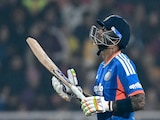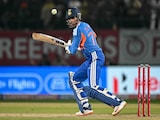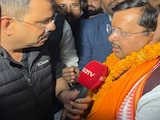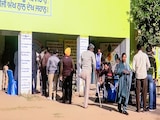India's Agni-II ballistic missile is capable of carrying nuclear weapons.
Union Defence Minister Rajnath Singh today underscored that India reserves the right to revoke its 'No First Use' pledge, which has been the cornerstone of its nuclear weapons policy for decades. "It is true that until now, India has strictly adhered to the 'No First Use' policy. But what happens in the future depends on the circumstances," Rajnath Singh told reporters after paying tributes to late Prime Minister Atal Bihari Vajpayee in Pokhran, where India held nuclear tests in 1974. His comment was seen by many as a warning to Pakistan amid bilateral tensions over the centre's move to end the special status to Jammu and Kashmir under Article 370.
Five facts about India's "No First Use" nuclear policy:
- "No First Use" is a pledge taken by a country to not use nuclear weapons as a means of warfare unless a rival nation resorts to such an action first. China was the first to pass such a resolution after it became a nuclear power in 1964, portraying it as an indication of the "purely self-defensive nature" of the country's nuclear strategy.
- India adopted the "No First Use" policy after the Pokhran II tests in 1998, asserting that its newly acquired arsenal will be used only as a deterrent. The then Atal Bihari Vajpayee government affirmed its commitment to the goal of a "world free of nuclear weapons", but reserved the right to exercise "massive retaliation" if another nation should strike first. Pakistan made no such commitment.
- The Indian doctrine also stated that it will not use nuclear weapons against non-nuclear powered states, and would strictly control the export of such materials and technologies. The onus of authorising retaliatory attacks was placed on the civilian political leadership, led by the Prime Minister.
- The 2014 election manifesto of the BJP included a promise to "revise and update" the country's nuclear doctrine. This gave rise to concerns that the party will consider revoking its "No First Use" pledge after taking over. However, Prime Minister Narendra Modi later dismissed these apprehensions.
- Many important leaders have called for the policy to be scrapped in the past. While late Defence Minister Manohar Parrikar said in November 2016 that India should not "bind itself" through such a pledge, Lieutenant General BS Nagpal -- former commander-in-chief of the Strategic Forces Command -- recently described it as a "formula for disaster".
Advertisement















